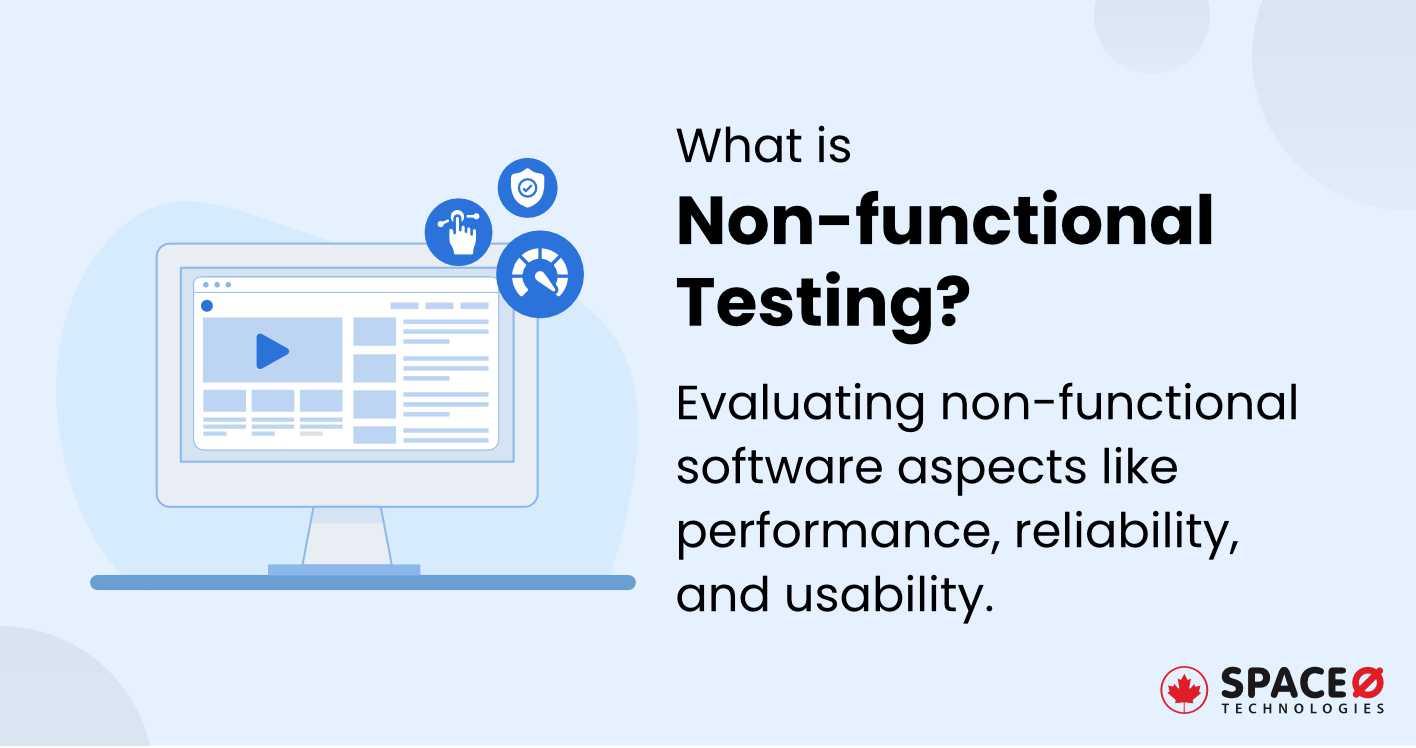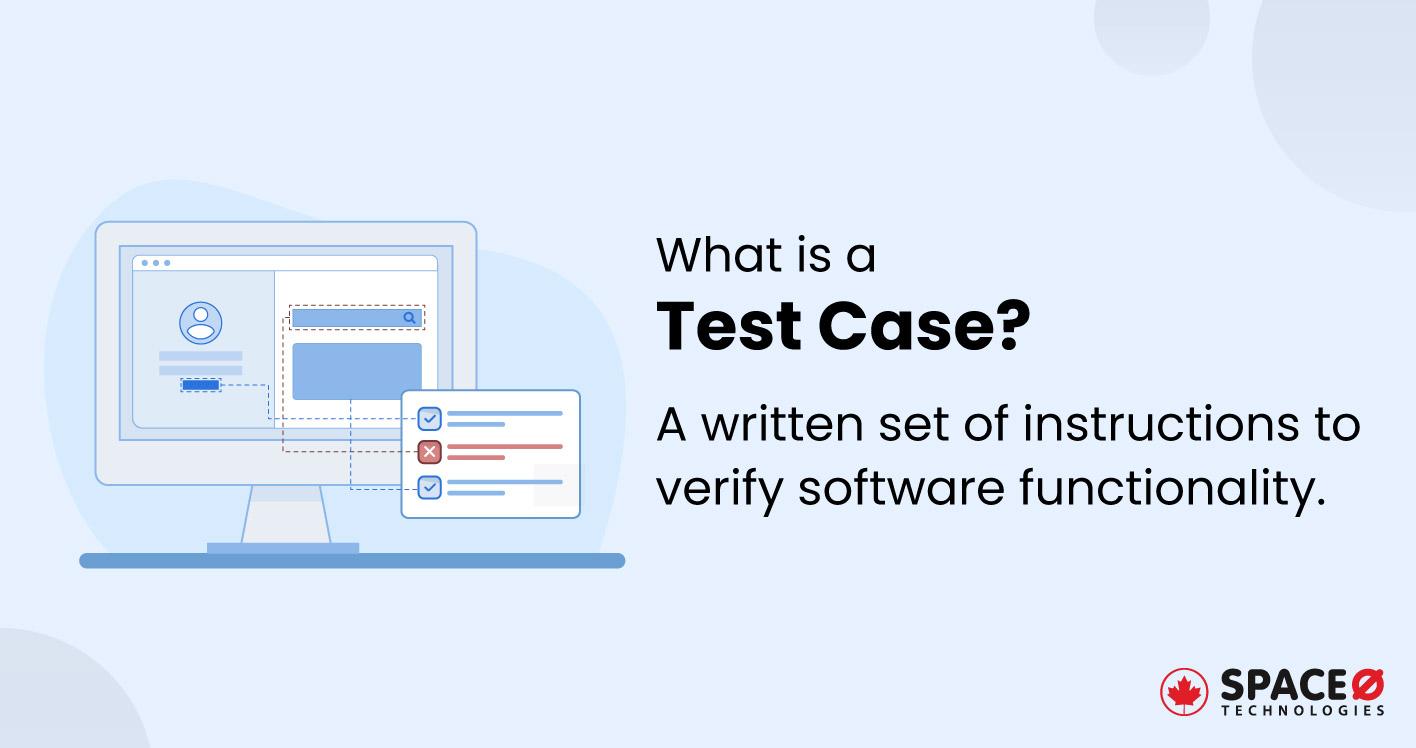
What is Non-functional Testing in Software Testing? [Definition + Types]
Table of Contents
What is Non-functional Testing?
Non-functional testing is a type of software testing that focuses on the non-functional aspects of a software application. By conducting non-functional testing tests, you evaluate and ensure the software’s performance, reliability, usability, security, scalability, and other critical attributes are up to the standards defined in the system’s non-functional requirements.
The primary goal of the non-functional test is to ensure that the software application meets the defined performance requirements and provides a high-quality experience for its users.
Unlike functional testing where you test the functionalities of software applications, non-functional testing allows you to check how software performs and works. To learn in detail about functional and non-functional testing methods, here is our definitive guide on software testing types. To properly understand the concept of testing types and methods, you must read it.
What are the Different Types of Non-functional Testing?
Here are several types of non-functional testing. Let’s learn about each type of testing in detail.
-
Performance Testing
Performance testing evaluates the speed, responsiveness, and stability of a software system under a particular workload. Performance testing is usually conducted to identify any bottlenecks or performance issues before the software product goes live.
-
Load Testing
A subset of performance testing, load testing involves validating software to a series of tasks that approach the limits of its specifications to assess how it handles high demand.
-
Compatibility Testing
Compatibility testing is done to ensure the software can run in different environments, including various operating systems, network environments, hardware configurations, and mobile devices. Learn more about compatibility testing to make sure the software works completely well on all platforms.
-
Usability Testing
Usability testing validates how user-friendly the software or system is. With usability testing, you test the user interface and user experience to make sure it is intuitive and easy to navigate for end-users.
-
Stress Testing
Stress testing is another subset of performance testing that involves testing beyond normal operational capacity and up to a certain breaking point. By conducting stress testing, testers observe the results of the software.
-
Integration Testing
Integration testing is a type of testing where individual units or components of a software system are combined and tested as a group. With integration testing, you identify issues that may occur when different components interact with each other. Verify and validate the functionality, reliability, and communication of interconnected units within the software and ensure that they work together as expected before the software gets deployed.
-
Scalability Testing
Scalability testing evaluates the ability of software to handle an increased amount of work or to be enlarged as needed. Scalability testing helps you know the system’s capacity to grow in terms of users, volume or transaction of volume.
-
Reliability Testing
Reliability testing assesses the ability of the software to know how a function performs under stated conditions for a specified period. Reliability testing helps to know whether the developed software is dependable and certainly won’t fail under specified circumstances.
-
Security Testing
Security testing is important to conduct in today’s current landscape of the digital world. Through security testing, you identify and fix the vulnerabilities of the software that might be exploited by hackers. If you are quite interested in security tests, here is a brief explanation of what security testing is.
These core types of non-functional testing and some others are recovery testing, compliance testing, and portability testing help to make sure that software is not only functional but also efficient, reliable, and user-friendly. By performing all these non-functional testing types, you provide a better user experience and a more successful software product to your client and its end-users.
What are the Benefits of Non-functional Testing?
Here are some key benefits of non-functional testing.
-
Enhance the Performance of Your Software Application
With non-functional testing, you can enhance software performance by identifying potential bottlenecks or performance issues before making the product live. By conducting this testing, you ensure that the user experience is smooth and responsive and software meets the defined expectation in terms of speed and reliability.
-
Provide Ultimate-level of User Experience Within Software
Usability testing, which is ultimately non-functional testing, helps you to enhance user satisfaction. By performing non-functional tests, you verify that the software is user-friendly, intuitive, and easily navigable, leading to a more satisfying user experience and increased user retention.
-
Ensure Your Software Performs Accurately Under Different Conditions
One unique benefit of non-functional testing is its ability to predict and validate how a system behaves under various conditions, including under high load, extreme stress, or over extended periods of operation. This software testing type helps to identify hidden issues that may not surface under normal operating conditions but can lead to serious problems in a live environment.
-
Provide Top-level Security Within Your Software
Non-functional testing provides an important security evaluation of software as it helps to identify potential vulnerabilities that could be used by attackers. By validating the software a proactive approach helps protect the system, its data, and its users and assures that the system is secure.
-
Ensure Your Software is Able to Handle a Heavy Load of Users
With scalability testing, you validate the software can handle an increased load and provides accurate results even when you scale it. That means you make sure the software is scalable and ensures that as the number of users grows, the software can adapt efficiently and continue to perform well.
In conclusion, non-functional testing helps you to provide improved performance, user satisfaction, and accurate prediction of your software under various conditions. With all these benefits, you ensure to keep the software product development of high quality, robust, and reliable.
All our projects are secured by NDA
100% Secure. Zero Spam
*All your data will remain strictly confidential.
Trusted by


Bashar Anabtawi
Canada
“I was mostly happy with the high level of experience and professionalism of the various teams that worked on my project. Not only they clearly understood my exact technical requirements but even suggested better ways in doing them. The Communication tools that were used were excellent and easy. And finally and most importantly, the interaction, follow up and support from the top management was great. Space-O not delivered a high quality product but exceeded my expectations! I would definitely hire them again for future jobs!”

Canada Office
2 County Court Blvd., Suite 400,
Brampton, Ontario L6W 3W8
Phone: +1 (437) 488-7337
Email: sales@spaceo.ca




